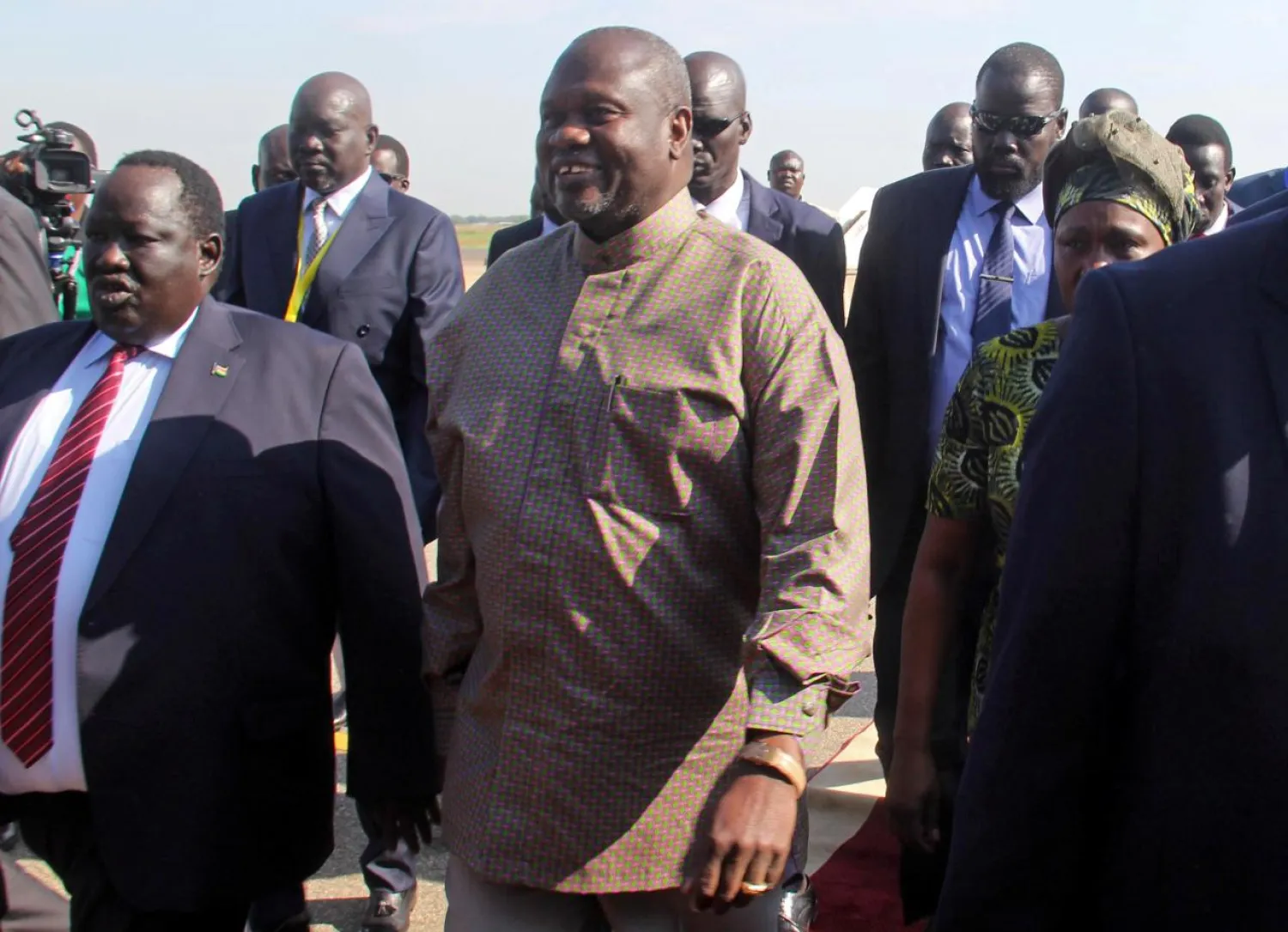South Sudan rebel leader Riek Machar returned on Wednesday the capital Juba more than two years after he fled the country following the collapse of a peace deal.
He was back in Juba to seal a new peace accord that was signed in the Ethiopian capital Addis Ababa in September.
Machar's office said he would attend peace celebrations hosted by his longtime rival, President Salva Kiir.
He arrived at Juba airport at 9:30am (0630 GMT) and was welcomed by Kiir. Soon after other aircraft arrived, carrying the presidents of Sudan and Ethiopia - states that helped broker the peace agreement.
It was not immediately clear if Machar would remain in Juba after the ceremony, as his aides have expressed concerns over his safety in the city.
A previous planned homecoming for Machar was put off by wrangling over how many bodyguards he could bring with him and what weapons they would carry.
Lam Paul Gabriel, a spokesman for Machar's SPLM-IO rebel group, had said on Tuesday that he would be accompanied by around 30 political figures.
"We are worried for his security in Juba, but the truth is here: we are for peace, and what we are trying to do is build trust. So that is why he is able to leave his forces behind and just go with politicians," Gabriel said.
The world's youngest nation plunged into civil war in late 2013 when troops loyal to Kiir clashed with forces loyal to Machar in the city.
Ethnically charged fighting soon spread across the impoverished state, shutting down oil fields, forcing millions to flee and killing hundreds of thousands of people.
Machar fled to neighboring Democratic Republic of Congo in 2016 after fierce fighting broke out again in the capital, killing hundreds. He later traveled to South Africa, where he was held under house arrest until earlier this year.
Under pressure from governments in East Africa and from United Nations and Western donors, Machar's group, other rebel factions and the government last month signed a peace deal, under which he will again become vice president.
South Sudan seceded from Sudan in 2011 after decades of north-south war.









